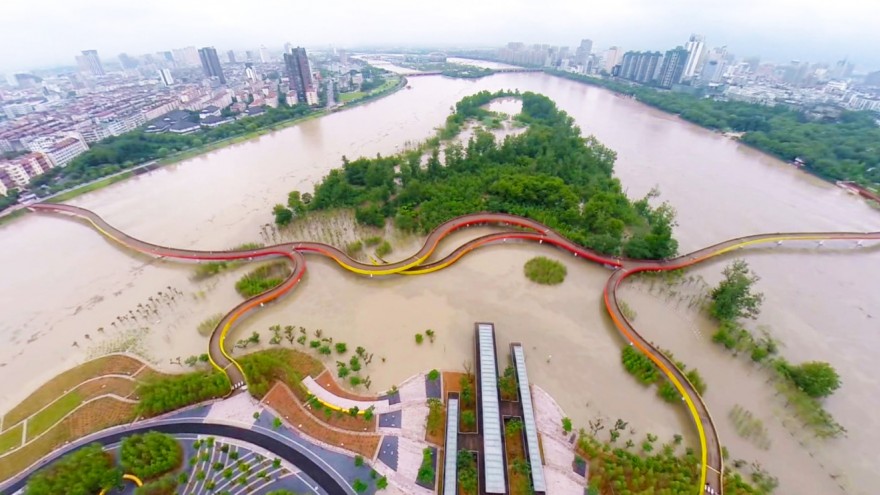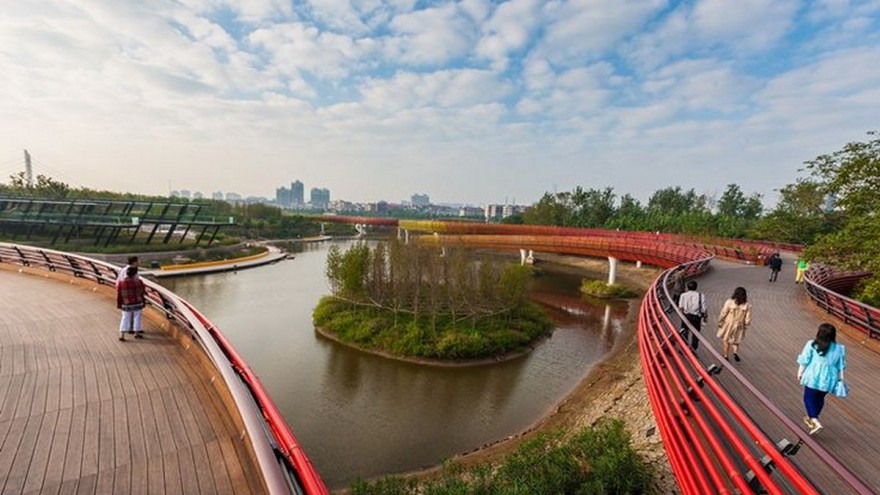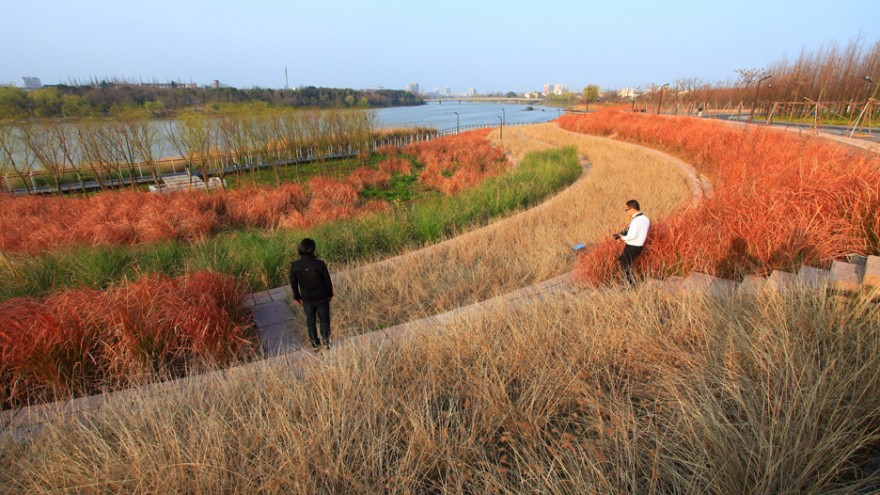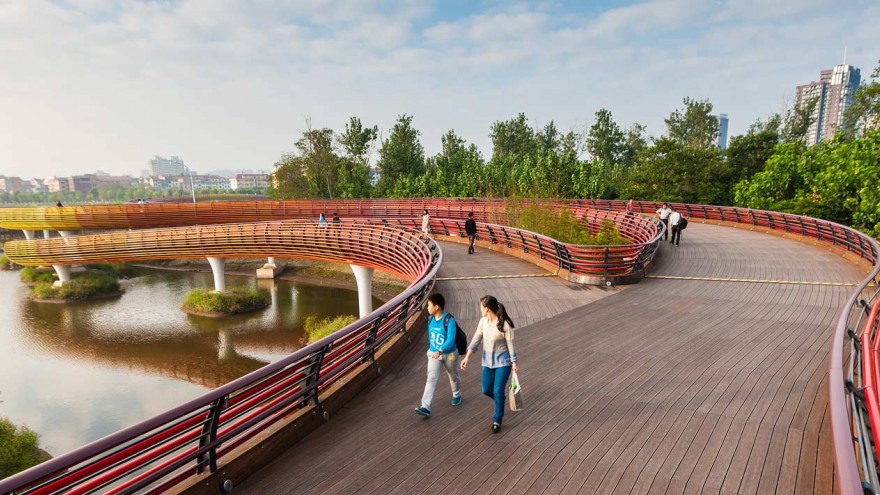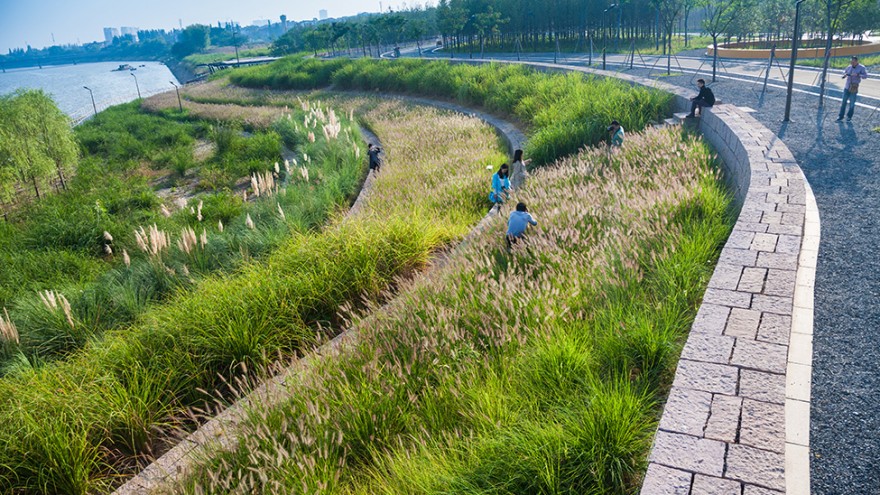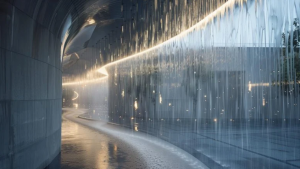It is a sprawling landscape project that was completed in 2015 in the heart of Jinhua, China. By building simple layered embankments lined with multiple rows of different plants, local landscape design firm Turenscape solved the city’s unsightly flood wall problem.
The park sits at the tricky meeting point of three distinct rivers, making flood control a topmost priority. Previously, vast concrete walls were built to stop floodwater which turned out to be an eye-sore and disruptive to the marsh-like ecology of the area. In 2011, Turenscape was drafted to create a more harmonious solution.
The designers identified that the concrete walls had to be torn down while flood protection had to remain intact. Instead of installing a blatant shield, the designers decided to shape the Earth of Yanweizhou in a way that would benefit its greenery and simultaneously obstruct rising floodwater.
Yanweizhou Park now features great islands of terraced plants which slow flooding down and absorb water. In doing so, the water feeds nutrient-rich silt to the plant life which then grows stronger, elaborating networks of root structures which hold the ground below in place. The thriving plants bolster the terrace structures and prevent ground erosion. The result is a landscape that irrigates and fertilises itself.
Turenscape’s design also features a fluid network of walkways above the wetlands. Painted in vivid shades of red, orange and yellow, the pathways’ design was inspired by a local festival tradition called Bandeng Long wherein local citizens fashion a massive dragon sculpture out of wooden lanterns and benches.
The arterial walkways allow visitors to traipse freely and experience the natural estuary up close. The bridges (which see upwards of 40,000 citizens and tourists daily) are reinforced to withstand disastrous flooding, but the chance of that happening is negligible.
Turenscape’s revision of Yanweizhou Park has made it a landmark of the city and won the title of World Landscape of the Year at Singapore's World Architecture Festival in 2015.

